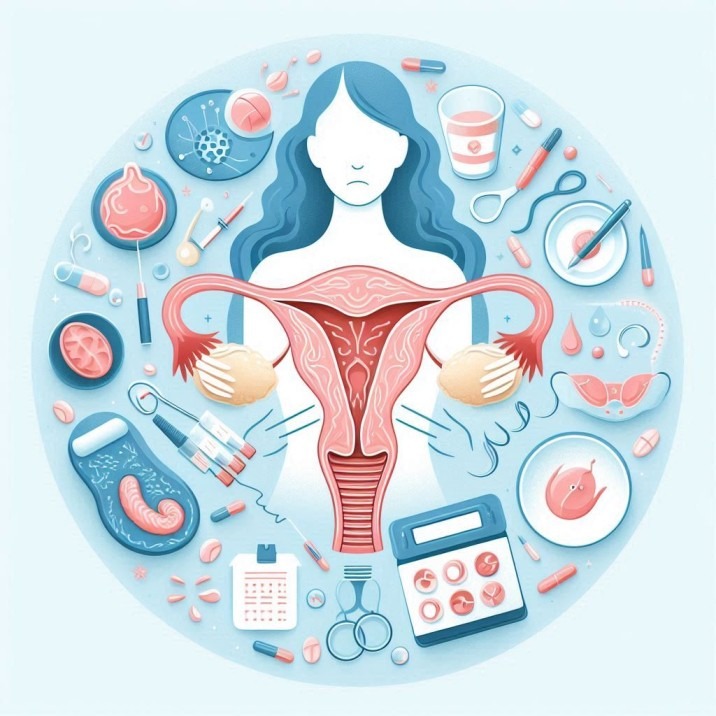
Polycystic Ovary Syndrome (PCOS) is a hormonal disorder in which the ovaries start producing extra androgen (male hormone). Due to this hormonal imbalance, a woman may face many problems, including irregular periods, cysts in the ovaries, etc. About 15% of women suffer from PCOS in reproductive age. This problem can occur anytime after crossing puberty. It is mostly diagnosed at the age of 20 to 30.
In such a situation, to stop this problem at the right time, its symptoms, causes and prevention methods should be known. Let's know all the important things related to this-
Common symptoms of PCOS-
- Irregular or heavy periods
- Missed periods
- Extra hair growth on the face, chest, and abdomen
- Increased acne and oily skin
- weight gain and difficulty losing it
- Thinning of hair
- Hair loss
- Dark patches on the skin, especially on the neck and armpits
Causes of PCOS-
- Hormonal imbalance- Extra androgen hormones affect the process of ovulation.
- Insulin resistance – High insulin levels increase the amount of androgen hormones, which cause PCOS.
- Genetic- Family history also increases the risk of getting PCOS.
- Inflammation- Hormonal imbalance is also possible due to low grade inflammation.
Risk Factors for PCOS
- Insulin resistance increases the risk of diabetes.
- The risk of developing cardiovascular diseases such as heart attack and stroke also increases.
- Irregular periods also increase the risk of endometrial cancer.
- The risk of having sleep apnea increases.
- Hormonal imbalances and fertility challenges increase the risk of depression and anxiety .
- Possibility of fertility challenges and risky pregnancy due to irregular ovulation
- Obesity increases the risk of many other diseases
- Risk of hypertension
Manage PCOS with these methods-
- Instead of focusing on calories, focus on food quality.
- Eat unprocessed whole grains that aren't from a packet, box, or can.
- Make sure to include protein in every meal.
- Stay away from sugar, drinks and juices.
- Consume healthy fats like ghee, olive oil, nuts, seeds and fatty fish.
- Get some sunlight in the morning and take a walk.
- Avoid excessive consumption of caffeine.
- Focus on strength training and do high-intensity workouts.
- Be sure to take a walk after eating.
- If you feel any symptoms are severe, do not hesitate to consult a doctor.
--Advertisement--

 Share
Share



